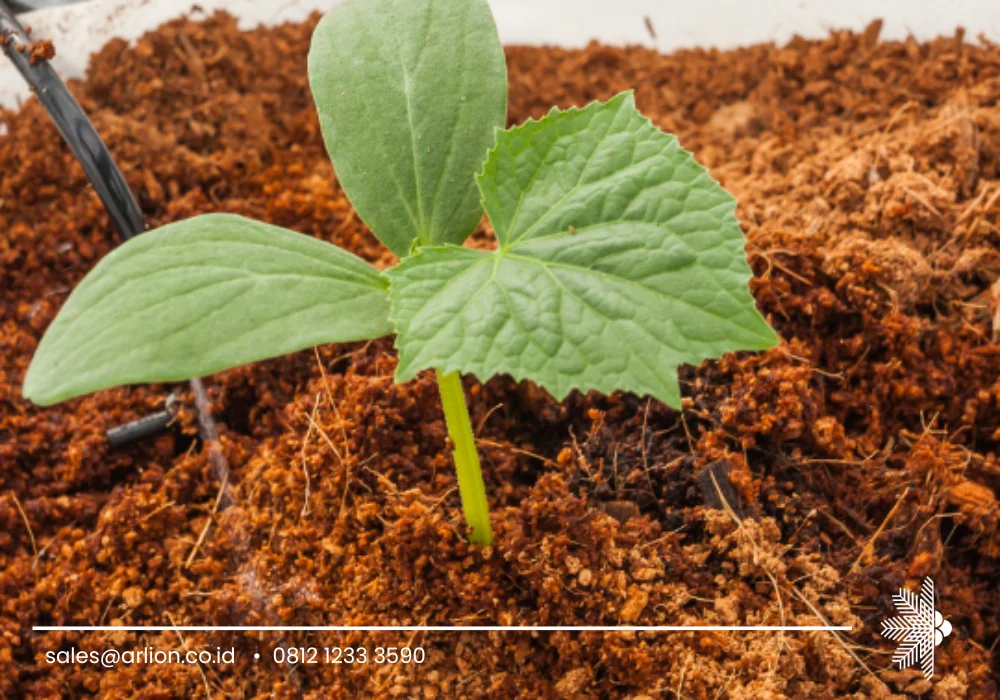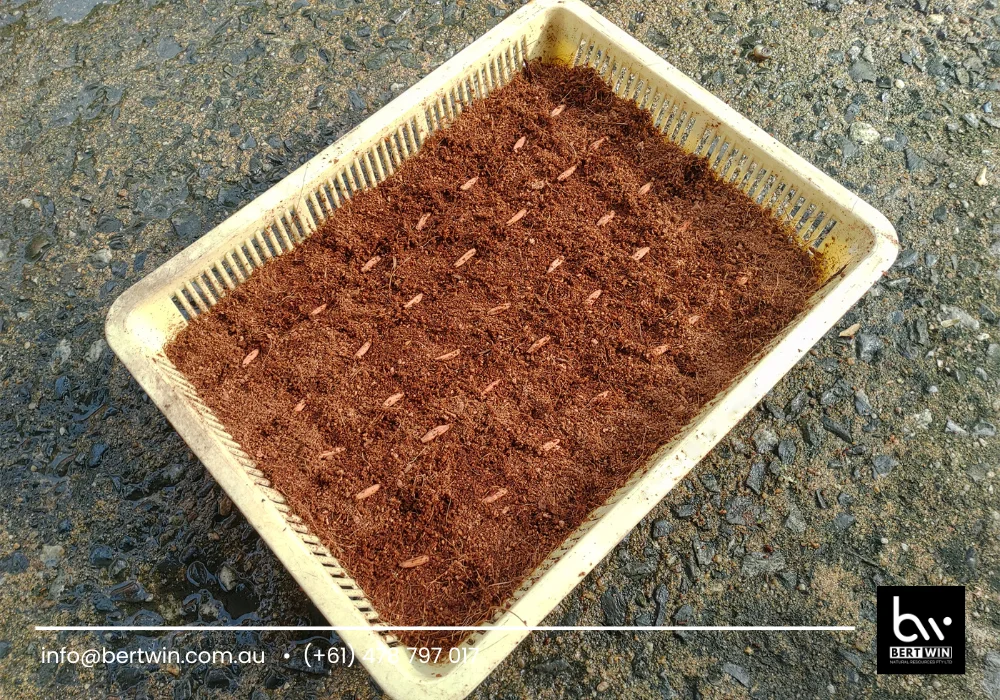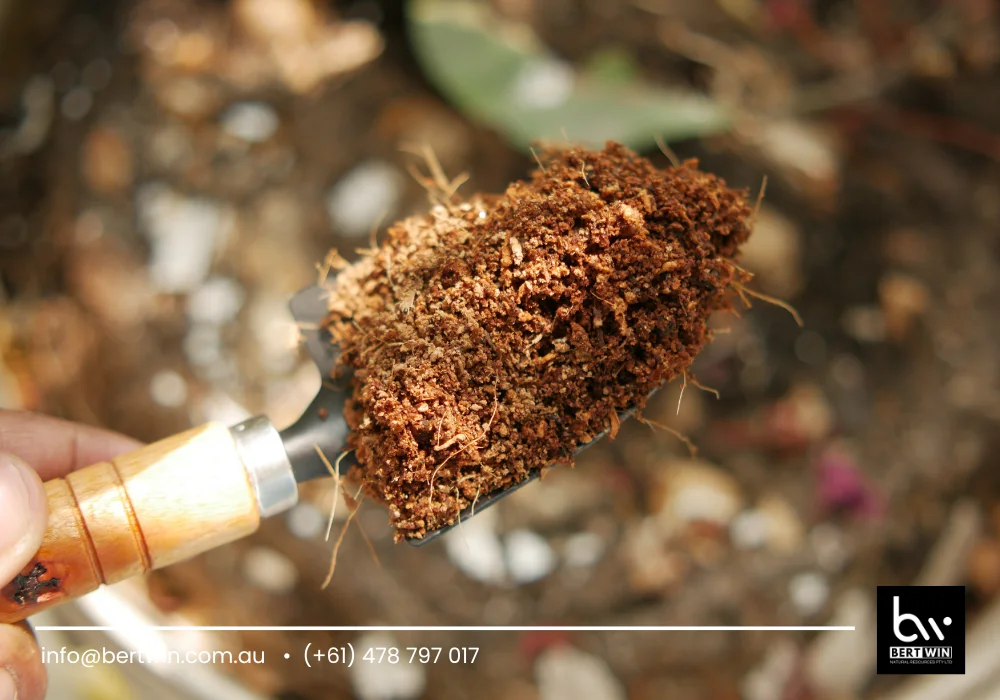Cocopeat for soil improvement is becoming increasingly popular as an eco-friendly and efficient solution for enhancing soil quality. This natural byproduct of coconut processing has many beneficial properties that can help address common soil problems, such as poor drainage, low water retention, and nutrient deficiency. In this article, we will explore how cocopeat for soil improvement can solve these challenges and provide sustainable benefits for your garden or farm.

What is Cocopeat and How Does it Improve Soil?
Cocopeat for soil improvement refers to the use of coconut coir, a natural fiber extracted from the husk of coconuts, as a soil amendment. Cocopeat is processed into a light, fluffy, and spongy material that can be mixed with soil to improve its structure and overall health. It is an organic, biodegradable substance that helps improve water retention, aeration, and nutrient availability in the soil.
Cocopeat is highly valued in agriculture due to its ability to retain moisture while also allowing excess water to drain freely. This makes it an ideal addition to both sandy soils (which drain too quickly) and clay soils (which tend to become waterlogged). Additionally, cocopeat for soil improvement enriches the soil with organic matter, promoting healthier root systems and more vibrant plant growth.
Problems Solved by Cocopeat for Soil Improvement
- Poor Water Retention in Sandy Soils
One of the most common issues in sandy soils is poor water retention. Sandy soil tends to drain water too quickly, which makes it challenging for plants to absorb enough moisture. This can lead to wilting and stunted growth, especially during dry periods. Cocopeat for soil improvement addresses this problem by increasing water retention in sandy soils. When mixed into the soil, cocopeat helps absorb and retain moisture, ensuring that plants have a consistent water supply. This improves the overall growing conditions for plants, allowing them to thrive even in arid environments. - Waterlogging in Clay Soils
On the other hand, clay soils tend to have the opposite problem: they retain too much water, leading to waterlogging. Waterlogged soils can suffocate plant roots, leading to root rot and poor plant health. By adding cocopeat for soil improvement, you can improve the drainage of clay soils. Cocopeat’s fibrous texture creates air pockets within the soil, promoting better airflow to the roots. This helps to prevent the soil from becoming compacted and encourages healthy root growth, even in heavy clay soils. - Nutrient Deficiency and Poor Soil Structure
Many soils, especially those that have been over-farmed or poorly maintained, suffer from nutrient deficiencies and poor structure. This makes it difficult for plants to access the essential nutrients they need for healthy growth. Cocopeat for soil improvement provides organic matter that helps to enrich the soil with essential nutrients. It can act as a slow-release fertilizer, releasing nutrients like potassium, calcium, and magnesium into the soil as it decomposes. Additionally, cocopeat improves soil structure by increasing its porosity, allowing plant roots to spread out more easily and access nutrients and oxygen.
Benefits of Using Cocopeat for Soil Improvement

- Enhanced Water Retention
One of the biggest advantages of using cocopeat for soil improvement is its ability to retain water. Cocopeat can hold up to seven times its weight in water, which is especially beneficial for plants during dry periods. This ability to retain moisture helps reduce the need for frequent irrigation, saving water and reducing the workload for gardeners. The water retention properties of cocopeat also prevent the soil from drying out too quickly, providing a consistent moisture level that is crucial for healthy plant growth. This is particularly beneficial for container gardens, raised beds, and plants in drought-prone areas. - Improved Soil Aeration
In addition to improving water retention, cocopeat for soil improvement also enhances soil aeration. Cocopeat’s fibrous texture helps create air spaces within the soil, allowing oxygen to reach plant roots. Adequate aeration is essential for root health, as it prevents the soil from becoming too compacted and ensures that roots can access oxygen for respiration. Improved aeration promotes better root growth, leading to healthier plants that are more resistant to diseases and stress. This makes cocopeat a valuable addition to any soil that suffers from poor aeration, such as heavy clay soils. - Eco-Friendly and Sustainable
Cocopeat for soil improvement is a highly sustainable option. It is made from coconut husks, a byproduct of the coconut industry, which would otherwise go to waste. By using cocopeat, gardeners and farmers help reduce waste and promote the recycling of natural materials. Additionally, cocopeat is biodegradable, meaning it breaks down naturally over time, enriching the soil with organic matter without harming the environment. Unlike synthetic soil amendments, cocopeat is chemical-free, making it a safe choice for organic gardening and eco-friendly farming practices.
How to Use Cocopeat for Soil Improvement

- Preparing Cocopeat
Before using cocopeat for soil improvement, you will need to hydrate it. Cocopeat typically comes in compressed blocks or bricks, so it must be soaked in water to loosen it up. Once hydrated, fluff it up to create a light, airy texture that can be mixed easily into the soil. - Mixing with Soil
To improve soil, mix cocopeat with the existing soil in your garden or planting containers. The ideal ratio is about 1 part cocopeat to 2-3 parts soil, although this can vary depending on the type of soil you have. Mix the cocopeat thoroughly into the top few inches of soil to ensure even distribution. - Replenishing Cocopeat
Over time, cocopeat will break down and decompose, releasing its nutrients into the soil. To maintain its benefits, you can replenish the cocopeat once or twice a year, depending on the needs of your garden. Cocopeat can also be combined with other organic materials, such as compost or manure, for even greater soil enrichment.
Conclusion
Cocopeat for soil improvement offers a simple yet highly effective solution for enhancing soil quality and addressing common soil problems. By improving water retention, aeration, and nutrient content, cocopeat helps create a healthier, more productive growing environment for your plants. It is an eco-friendly, sustainable option that provides long-term benefits for both home gardeners and large-scale farmers.
For further information, you may contact WhatsApp at (+61) 478797017 or via email at info@bertwin.com.au.
